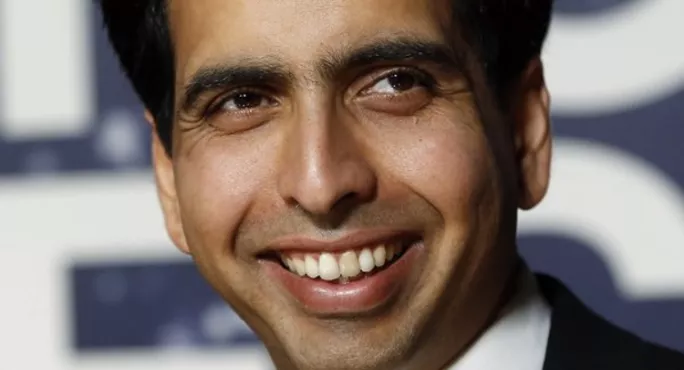Teachers should use a combination of encouraging “mastery” and a growth mindset to close the “Swiss cheese gaps” in their students’ learning, the founder of the Khan Academy said today.
Salman Khan, who established the Khan Academy in 2006, said too often students were being let down by conventional teaching because they were moved on to the next topic in a subject before they had fully mastered the content.
By moving the entire class through the curriculum before they had got to grips with the topic, meant a class would develop “Swiss cheese gaps” in their understanding of a specific subject.
Conventional methods of teaching and learning too often meant students were fixed as being an A, B or C grade student.
To counter this, Mr Khan said teachers should harness the power of technology to track pupil’s progress, while urging them to strive to understand the subject by using the pedagogical approach championed by psychologist Professor Carol Dweck.
Schools should focus less on giving out grades, he said, and more on giving students the time to fully understand their subject.
“In a maths test I may get 80 per cent, another student may get 85 per cent and an A grade student may get 95 per cent. I didn’t know 20 per cent of the material but even if we identify those gaps the whole class is then forced to march into the next subject, probably a more advanced subject like algebra,” he said in a video message at the educational technology conference Bett.
“And we keep getting pushed and those gaps keep accumulating so at some point we get to an algebra class and nothing makes sense. And even worse, at a metacognitive level the message we’re telling students is: ‘You got 80 per cent and that’s fixed. We’re going to write that grade in a grade book, you’re a C student and we’re going to move on’.”
For students to have grit, resilience and a growth mindset, Mr Khan said, teachers needed to tell them they had yet to understand 20 per cent of the material “yet”.
“Rather than giving students A, B, C, D, what is fixed should be that every student masters their subject, that no student has these Swiss cheese gaps and what is variable is when and how long they do it,” he said.
Such an approach would not be possible 50 years ago, he said, but thanks to the development of technology teachers are able to trace their students’ progress and act accordingly.
“If I were to tell you this 50 years ago, you’d say that’s crazy. How do you logistically do that with 30 students all working at a different pace? But now we have the tools to do it,” he added.
Want to keep up with the latest education news and opinion? Follow TES on Twitter and like TES on Facebook
To download the special edition, Android users can click here and iOS users can click here. Use “Bett2016” as both the username and password.





